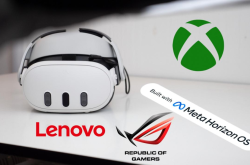Metro, DMALL follow suit in seeking Hong Kong IPO, Wumart Group's Zhang Wenzhong urgently needs funds to turn the tide
![]() 07/21 2024
07/21 2024
![]() 640
640
Since April 2015, when Wumart Stores Group delisted from the Hong Kong Stock Exchange through privatization, Zhang Wenzhong's aspiration to return the "Wumart Group" to the capital market has never ceased. After nearly 10 years of IPO attempts, it is still lingering outside the door of the capital market.
Recently, Metro Supply Chain Co., Ltd. (hereinafter referred to as "Metro Supply Chain") submitted its listing application materials to the Hong Kong Stock Exchange, and Metro Supply Chain was previously Wumart Tech, which failed in its IPO attempt in 2021.
In addition to Metro Supply Chain, DMALL, the second venture of Zhang Wenzhong, is also in the IPO stage. Since December 2022, DMALL has submitted its listing application to the Hong Kong Stock Exchange three times and is still waiting for a hearing.
At present, traditional retail formats are still on a downward trend, and new business models are the key to knocking on the door of the capital market. In fact, both DMALL and Metro Supply Chain are the results of Wumart Group's plan to transform from a traditional retailer to a supply chain service and digital transformation.
Change tactics and fight for IPO again
There is little secret in the retail industry, and the main core competitive advantage lies in the supply chain. Take Sam's Club as an example, the price advantage brought by its global supply chain system has become one of its "magic weapons".
The same business logic applies to Metro Supply Chain. Currently, Metro Supply Chain provides retail distribution services to 100 Metro stores, 366 Wumart supermarkets, and 304 Wumart convenience stores in China.
When it comes to supply chain services, Metro is a pioneer in the industry. Founded in the 1960s, Metro is Germany's largest and the world's third-largest retail wholesale supermarket group, mainly focusing on B-end customer businesses such as upscale restaurants and hotels, including food distribution, welfare gift distribution, retailer distribution, and more.
In 1995, Metro officially entered the Chinese market, becoming the first foreign supermarket to enter China and introducing concepts such as "cash and carry" and "warehouse-style" to China.
However, at that time, the Chinese supermarket market was still dominated by C-end customers, and Metro, which only operated in the B-end, faced limitations in its own development. According to regulations, only corporate legal entities can become Metro members. In contrast, Sam's Club, which also adopts a paid membership system, quickly occupied the Chinese market with its C-end advantage.
Furthermore, with the rapid development of e-commerce in China, efficient and affordable shopping and convenient logistics have marginalized paid membership stores, just like many offline supermarkets, in the wave of era development.
To cope with changes in the Chinese market, Metro has also attempted several transformations, such as opening the electronic chain store "Media Markt," opening C-end individual membership systems, testing the convenience store brand "Hemahome," and adjusting its business structure, but the results were not ideal.
After many twists and turns, the German supermarket king ultimately headed towards a "sell-off" fate. In 2019, Metro Group began negotiations with Wumart Group regarding the sale of Metro China's business. In April 2020, Wumart Group finally completed the acquisition of an 80% controlling stake in Metro China for 1.9 billion euros (approximately 14.9 billion yuan).
Subsequently, in March 2021, Wumart Group combined the privatized Wumart Stores Group with Metro China, transforming into "Wumart Tech" and submitting a listing application to the Hong Kong Stock Exchange, but ultimately failed to succeed.
Three years later, Wumart Tech divested and sold its retail supermarket assets to Wumart Retail, retaining the two core segments of "Metro Business" and "Wumart Sourcing," and renamed itself "Metro Supply Chain" to once again launch an assault on the Hong Kong Stock Exchange in June 2024.
According to the prospectus, Metro Business is primarily engaged in the food FMCG supply chain business of the Metro brand in China, owning nearly 12 million square meters of self-owned commercial real estate, including two central distribution centers and 16 regional distribution centers, 4 fresh food processing centers, and 100 local fulfillment centers.
Wumart Sourcing is primarily responsible for the development of private label products and the supply chain management of KA products, owning two private label brands, "Eke" and "Metro Selection," with over 2,300 SKUs.
In fact, "new wine in old bottles" is an old trick of Zhang Wenzhong's. DMALL, which is also queuing up for an IPO, was originally a cash register tool for Wumart supermarkets. In the name of the group's digital transformation, it transformed into a digital platform providing SaaS services to the local retail industry.
Backed by a big tree, it's hard to escape the dependency syndrome
In this relaunch of its IPO, Metro Supply Chain has reassessed its corporate positioning, aiming to become China's most trusted food and FMCG supply chain partner.
In terms of revenue in 2023, Metro Supply Chain has become China's second-largest food FMCG supply chain and retail supply chain solutions provider.
However, it is worth noting that the industry is currently relatively fragmented. According to Frost & Sullivan data, the combined market share of the top five food FMCG supply chain solution providers in China is 0.8%, with Metro Supply Chain, ranking second, holding only 0.2% of the market.
From the current business structure of Metro Supply Chain, the company's operations can be divided into three segments: food service and distribution solutions for enterprises and institutions, welfare gift solutions, and distribution solutions for retailers (including product sales and supply chain services).
The first two segments are primarily B2B models, while the distribution solutions for retailers are B2B2C models. However, the latter's market size is much larger than the former and is also Metro Supply Chain's core business, accounting for approximately 60% of revenue. Nevertheless, the B2B2C model faces more intense market competition, with giants such as JD Logistics and Cainiao Logistics expanding upstream.
According to the prospectus, from 2021 to 2023, Metro Supply Chain served up to over 88,000 customers. In 2023, 178 of China's Top 500 enterprises and their affiliates were customers of Metro Supply Chain.
However, Metro Supply Chain's largest customer for consecutive years has been Wumart Group. From 2021 to 2023, the revenue contributed by Metro Supply Chain's top five customers accounted for 63.7%, 64.7%, and 64.0% of total revenue, respectively. Among them, the revenue from Wumart Group, the largest customer, accounted for 61.5%, 62.3%, and 62.0%, respectively.
The high dependency on Wumart Group also brings certain limitations to the development of Metro Supply Chain.
In particular, the core business of retailer distribution solutions has seen a continuous decline in revenue scale during the reporting period, falling from 16.634 billion yuan in 2021 to 14.932 billion yuan in 2023, with a particularly sharp decline of 9.03% in 2023.
In response, Metro Supply Chain stated that the reduction of approximately 15% in the number of Wumart Group stores in 2023 led to a decline in sales revenue from Wumart Group, affecting the revenue of retailer distribution solutions.
The decline in core business has impacted Metro Supply Chain's overall revenue performance. From 2021 to 2023, Metro Supply Chain achieved revenues of 27.82 billion yuan, 27.102 billion yuan, and 24.858 billion yuan, respectively, with a compound annual growth rate of -5.47%.
DMALL, which has a similar background, has a deep understanding of the independence dilemma. Although it positions itself as "providing SaaS services to the local retail industry," it is still difficult to escape the fate of being seen as the "e-commerce department of Wumart." In recent years, the proportion of independent customers in DMALL's revenue has decreased from 33.4% in 2020 to 25.1% in 2023.
This may be the biggest obstacle for DMALL in its third attempt at an IPO. Doubts continue to emerge. If DMALL is merely the digitization and online transformation of Wumart's retail business, there is no need for a separate listing.
Similar doubts may also arise in the case of Metro Supply Chain.
Are there any suspicious transactions in payments and receipts?
In fact, Metro Supply Chain, which relies on Wumart Group, has experienced unstable profitability in recent years.
From 2021 to 2023, Metro Supply Chain's net profit fluctuated significantly, recording 332 million yuan, -471 million yuan, and 253 million yuan, respectively, with a thin net profit margin of 1.2%, -1.7%, and 1%, respectively.
It is worth noting that the significant differences in gross profit margins across the company's various businesses have had an impact on overall profits. Among them, retail distribution solutions, which account for the highest proportion of revenue, had a gross margin of only 3.7% in 2023. During the same period, the gross margin of food service and distribution solutions reached 20.6%, and the gross margin of welfare gift solutions reached 17.7%, but these two businesses combined accounted for less than 30% of total revenue.
In May 2024, Zhang Wenzhong announced Wumart's decision to comprehensively promote the "Everyday Low Price" strategy, which may further squeeze the profits of Metro Supply Chain in the future.
It is important to note that Metro Supply Chain's financial liquidity situation is not optimistic.
According to the prospectus, from 2021 to 2023, Metro Supply Chain's bank balances and cash were 2.582 billion yuan, 1.864 billion yuan, and 527 million yuan, respectively, showing a significant decline. By the end of 2023, Metro Supply Chain's borrowings had approached 4.8 billion yuan.
From 2021 to 2023, the company's asset-liability ratio remained above 100%, reaching 117.86% in 2023. During this period, net liabilities were 822 million yuan, 2.811 billion yuan, and 4.669 billion yuan, while net current liabilities were 679 million yuan, 1.897 billion yuan, and 4.375 billion yuan, with the current ratio continuing to decline.
It is worth noting that, amid tight capital chains, significant changes have occurred in Metro Supply Chain's receivables and payables from related parties, increasing sharply from 2.74 billion yuan and 1.362 billion yuan in 2022 to 4.528 billion yuan and 5.342 billion yuan, respectively, at the end of 2023, with the majority being non-trade-related amounts.
At the end of 2023, the non-trade-related amount in receivables from related parties was 3.15 billion yuan. Among them, Peidi Commerce accounted for 1.475 billion yuan, primarily for receivables related to the Metro cash pool arrangement, with an annual interest rate of 0.35%; Wumart Tech accounted for 1.268 billion yuan, also related to transactions for loan repayment.
During the same period, the non-trade-related amount in payables to related parties was 4.912 billion yuan. Among them, Peidi Commerce accounted for 1.473 billion yuan, primarily for payables related to the cash pool arrangement, with annual interest rates of 0.35% and 1.6%; Retail Enterprise Corporation Limited, controlled by Zhang Wenzhong, accounted for 3.317 billion yuan, all related to loan matters.
Peidi Commerce is an indirect subsidiary controlled by Zhang Wenzhong through multiple layers. The intricate transactions between Wumart Group's receivables and payables are difficult to decipher.
However, with deteriorating assets and liabilities and insolvency, Metro Supply Chain urgently needs to go public to replenish its liquidity and alleviate difficulties, and Zhang Wenzhong's Wumart Group also needs an IPO to turn the tide.




